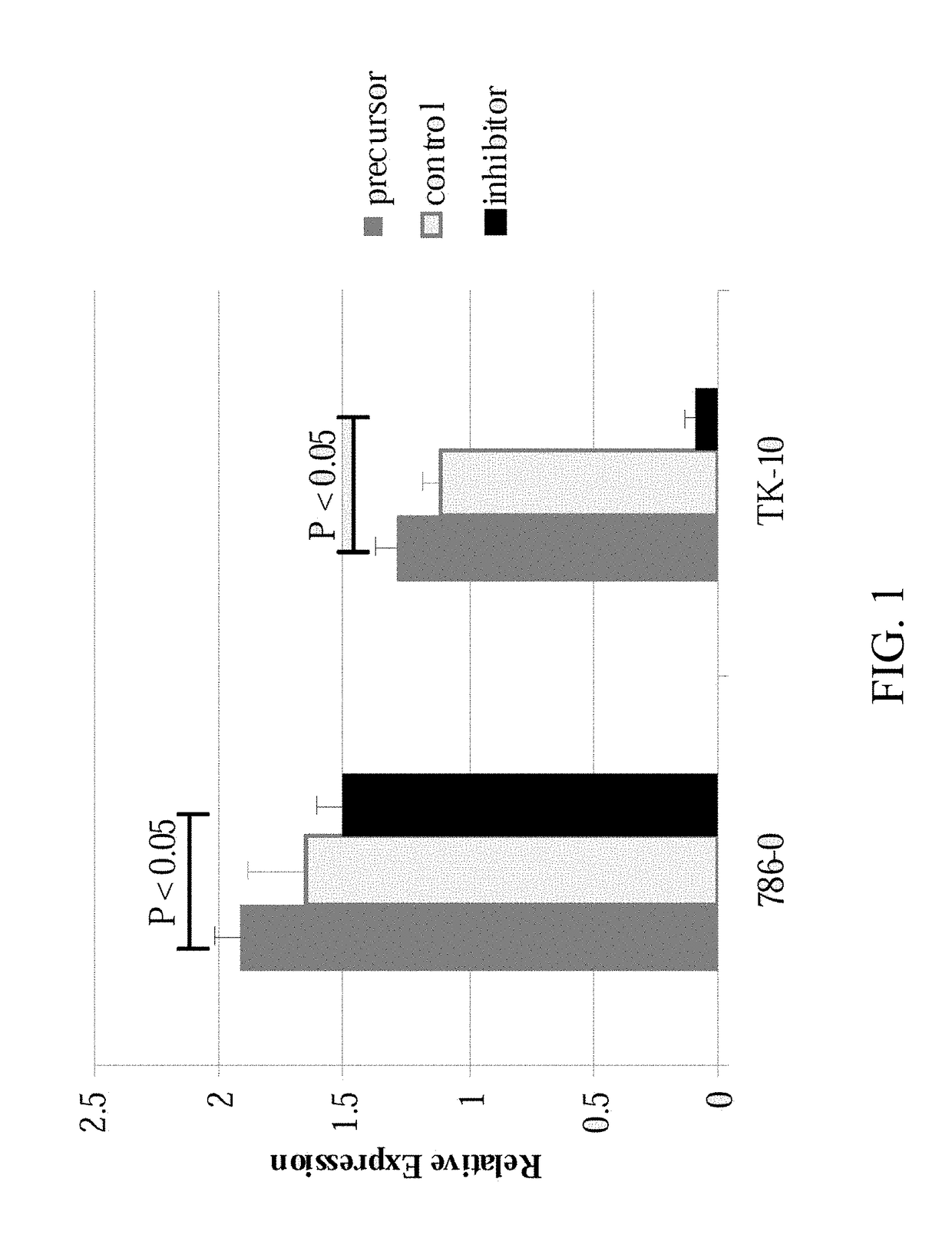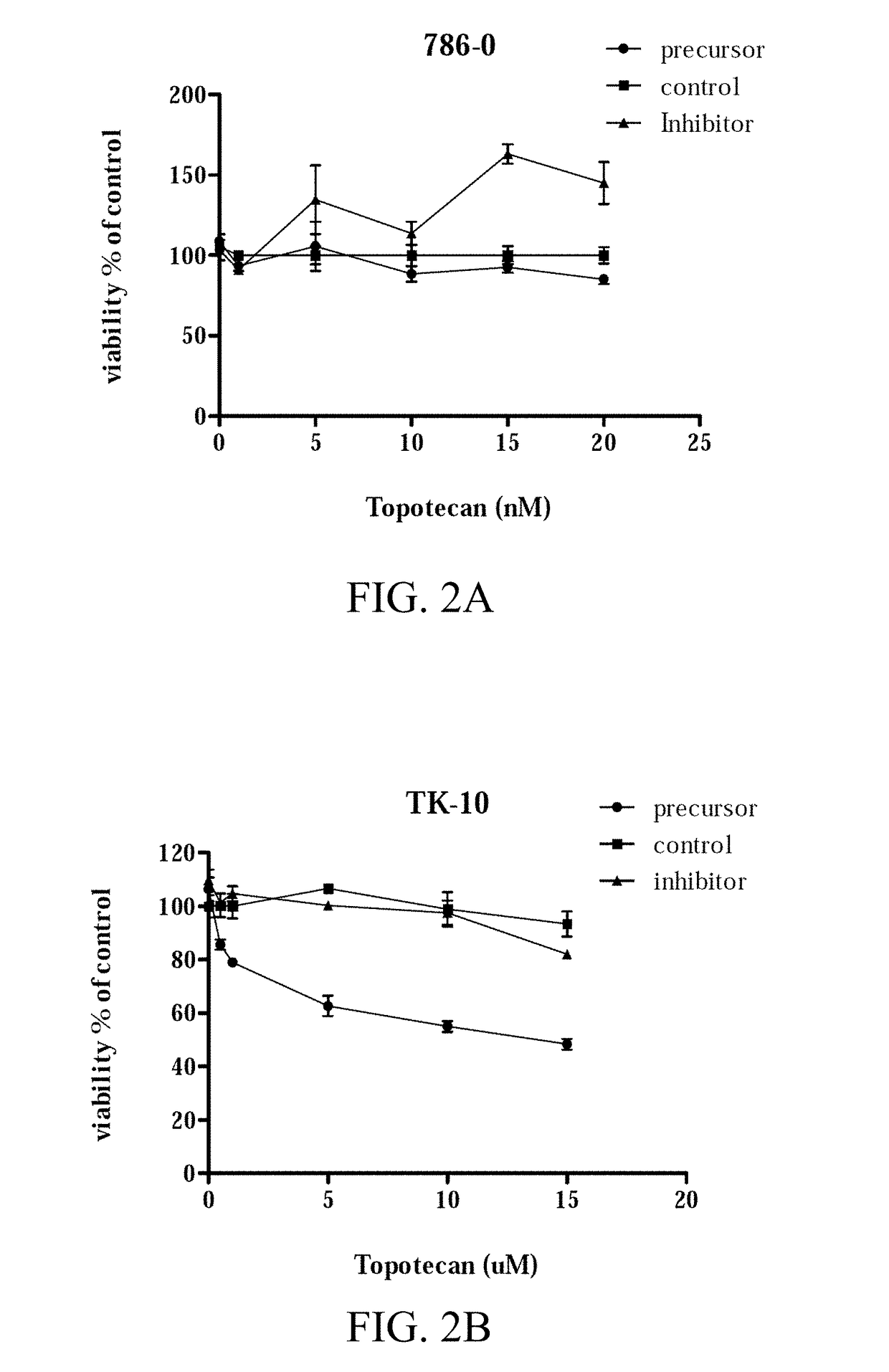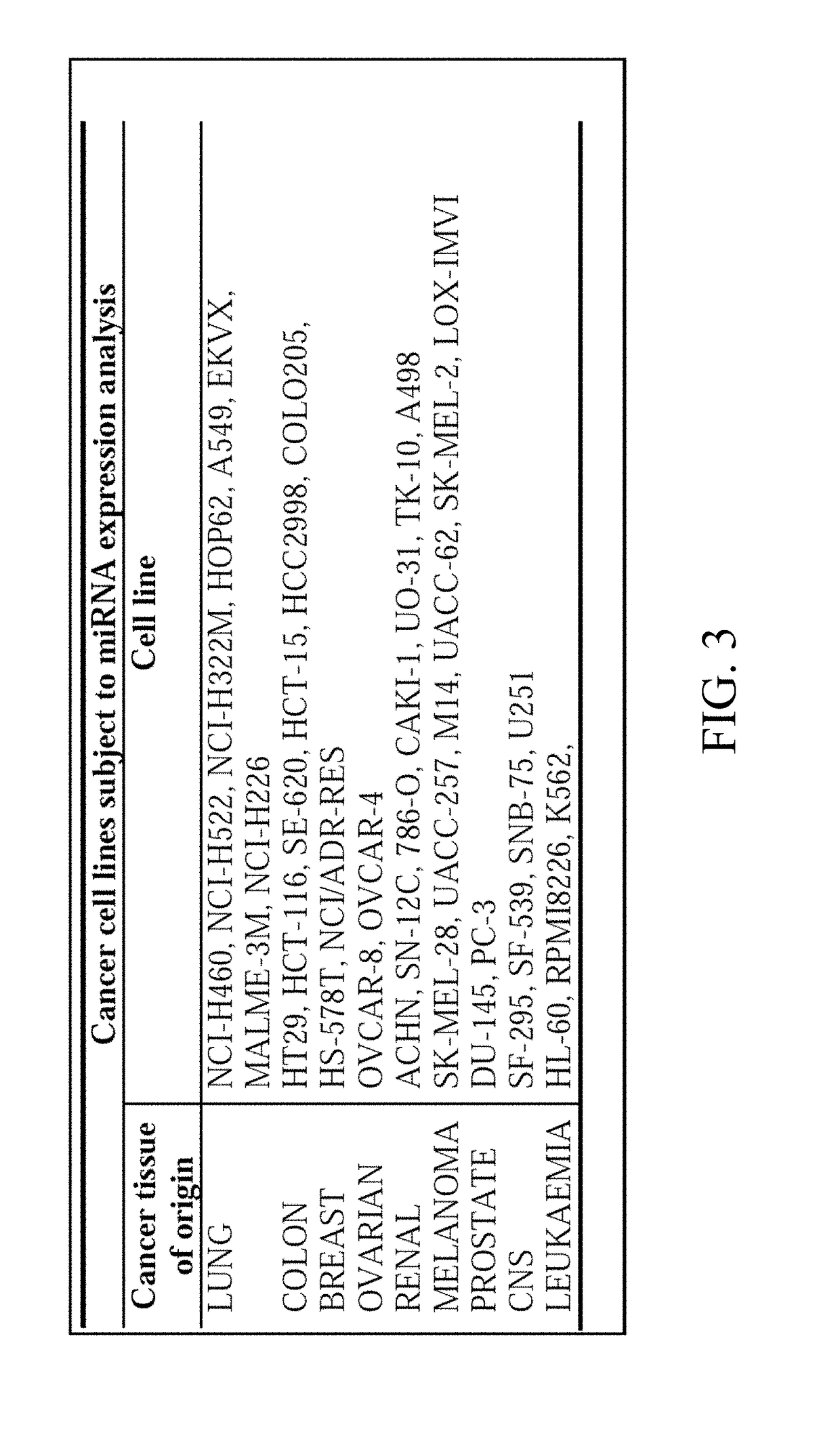Human cancer micro-rna expression profiles predictive of chemo-response
a human cancer and expression profile technology, applied in the field of human cancer microrna expression profiles predictive of chemo-response, can solve the problems of incomplete understanding of the molecular determinants of chemotherapy-response, few successful treatment options for patients with persistent or recurrent cancer, etc., and achieve the effect of increasing the likelihood of effectiveness
- Summary
- Abstract
- Description
- Claims
- Application Information
AI Technical Summary
Benefits of technology
Problems solved by technology
Method used
Image
Examples
example 1
MicroRNA Expression and Cancer Cell Line GI50
[0214]Based on the inventors' generated miRNA expression data and publicly available GI50 values for cisplatin, carboplatin, doxorubicin, paclitaxel, docetaxel, gemcitabine and topotecan, Pearson's correlation test identified 22 miRNAs associated with cisplatin sensitivity (p<0.05), 48 miRNAs associated with doxorubicin sensitivity (p<0.05), 35 miRNAs associated with sensitivity to paclitaxel, topotecan (p<0.05), 34 miRNAs associated with sensitivity to gemcitabine (p<0.05), 32 miRNAs associated with docetaxel sensitivity (p<0.05), and 29 miRNAs associated with carboplatin sensitivity (p<0.05) (FIGS. 4A-G). Sixteen miRNAs (miR367, miR200c, miR515, miR377, miR508, miR340, miR129, miR130a, miR142_5p, miR155, miR296, miR34c, miR380_5p, miR489, miR494, and miR526) were associated with in vitro sensitivity to 3 or more anti-cancer agents (FIGS. 4A-G). Of the 16 miRNAs found to correlate with resistance to 3 or more anti-cancer agents, 13 miRNA...
example 2
The Effect of Altered MicroRNA Level on Renal Carcinoma Cell Viability
[0215]In an effort to validate the biological significance of the inventors' findings, and to evaluate miRNAs associated with drug sensitivity as potential therapeutic targets, the inventors selected miR-367 and topotecan to be studied further. This miRNA / drug combination was selected based on the p-value observed in the correlation analysis of topotecan GI50 and miR-367 expression (p=0.0035), and the extremes of levels seen in sensitive and resistant cells available for further analysis. With this in mind, renal cell lines 786-0 and TK-10 were selected for analysis based on their associations between topotecan sensitivity and miR-367 expression: Renal cell line 786-0 showed the highest expression value of miR-367 (1.072) and the highest sensitivity to topotecan (log10 GI50 value of −7.903), and conversely, renal cell line TK-10 showed the lowest expression value of miR-367 (−2.84) and the lowest sensitivity to to...
example 3
Pathways Involved in De-Regulated MicroRNAs
[0218]In an effort to gain some insights into the potential role of identified miRNAs on various cellular processes, the inventors endeavored to identify the predicted mRNA targets genes of miR-367 using the miRDB database [20]. This database hosts 703 human miRNAs with 236,543 gene targets. In doing so, the inventors identified 435 predicted mRNA target genes for miR-367, with 68 of these predicted target genes having a prediction score more than 80. In an effort to place these predicted target genes into a relevant biologic context, an analysis of biologic pathway relationships was performed using commercially available software (GeneGo systems). Pathway modeling identified 9 pathways represented in miR-367 predicted target genes (p<0.05), the top four of which (by p-value) are associated with control of apoptosis and cell survival including cytoplasmic / mitochondrial transport of the proapoptotic proteins Bid, Bmf and Bim (p<0.003) and al...
PUM
| Property | Measurement | Unit |
|---|---|---|
| ionic strength | aaaaa | aaaaa |
| volumes | aaaaa | aaaaa |
| volumes | aaaaa | aaaaa |
Abstract
Description
Claims
Application Information
 Login to View More
Login to View More - R&D
- Intellectual Property
- Life Sciences
- Materials
- Tech Scout
- Unparalleled Data Quality
- Higher Quality Content
- 60% Fewer Hallucinations
Browse by: Latest US Patents, China's latest patents, Technical Efficacy Thesaurus, Application Domain, Technology Topic, Popular Technical Reports.
© 2025 PatSnap. All rights reserved.Legal|Privacy policy|Modern Slavery Act Transparency Statement|Sitemap|About US| Contact US: help@patsnap.com



